December 26, 2018
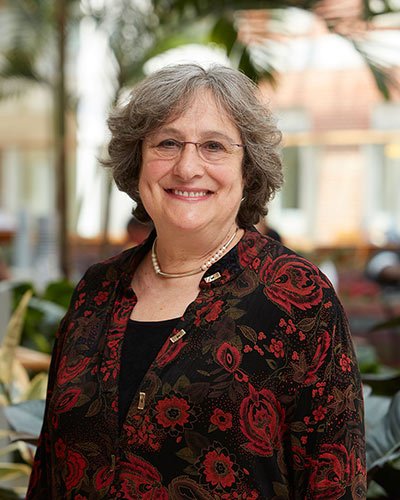
UMSOM Researchers Tested the Effectiveness of a Topical Antibiotic in Eliminating Staphylococcus aureus Colonization in Hospitalized Infants
A team of doctors led by Karen L. Kotloff, M.D., University of Maryland School of Medicine (UMSOM), Center for Vaccine Development and Global Health (CVD), has performed a clinical trial involving multiple hospitals that tested the effectiveness of applying a topical antibiotic known as mupirocin for prevention of Staphylococcus aureus (SA) infection in babies in the neonatal intensive care unit (NICU). This study was published in the journal Pediatrics.
In this study, between 10 and 45 percent of infants became colonized with SA in the eight NICUs across the country that participated in this study (a listing of participating sites is shown below). A 5-day course of mupirocin was applied to the skin and nasal passages of the infants in the NICU who tested positive for SA. The results indicate mupirocin is safe and highly effective in eliminating SA from the skin and nasal passages of these infants. More than 90 percent of the treated infants tested negative for SA after treatment, indicating effective “decolonization” in response to mupirocin. This is the first randomized multicenter clinical trial to demonstrate the effectiveness and safety of mupirocin in infants, including those born prematurely, and to show that this treatment reduced colonization by both SA that are susceptible to commonly used antibiotics (MSSA) and those that are not (MRSA).
SA are bacteria that are commonly present on the skin and mucous membranes without causing disease. When bacteria live in the body without causing disease, this is referred to as colonization. Infants who become colonized with SA while hospitalized are at increased risk of developing life-threatening infections. Therefore, this treatment is likely to reduce clinical infection in infants. The effect of a course of mupirocin lasted for at least two to three weeks.
Watch The Video
“Staph aureus is a leading cause of sepsis in young children admitted to the NICU. Sepsis, which is systemic infection, can be fatal in infants. Thus, preventing these infections is very important in managing risk for babies in the NICU who are fragile and struggling with multiple medical problems,” said Dr. Kotloff. This is the first study to test the safety and efficacy of mupirocin use in the NICU using a randomized controlled trial.
About the Research
This study performed a randomized clinical trial with premature and full-term newborns and children under two years old who were admitted to the NICU for stays of at least 14 days. The study did not include a placebo control, because even application of ointments without any active ingredients into the nose of premature infants has been associated with infection. There were two goals of the study: (i) to determine if applying mupirocin to the nasal passages, perianal region, and umbilical region was safe and well tolerated; (ii) to determine if topically applied mupirocin eliminated SA in infants that tested positive in a nasal swab for the presence of SA.
Of the more than 6,000 babies admitted to the NICU and tested for SA by nasal swab, 18 percent were positive. The randomized study evaluated 155 of the 1,140 infants who tested positive. Rash in the perianal region, usually attributed to other causes, was the most common adverse reaction in treated infants. There was no evidence that the treatment resulted in unintended disease that could result from perturbations of the gastrointestinal microbiome. Thus, the topically applied mupirocin was well tolerated and safe.
More than 90 percent of the treated infants tested negatively for SA after treatment, indicating effective “decolonization” in response to mupirocin. For the infants who remained in the NICU and were tested at three weeks, approximately 50 percent of the treated infants and only two percent of the untreated infants remained negative for SA. Encouragingly, there was no evidence of the emergence of methicillin-resistant strains. Thus, this is the first randomized multicenter clinical trial to demonstrate the effectiveness and safety of mupirocin in infants, including those born prematurely, and to show that this treatment reduced colonization by both SA that are susceptible to commonly used antibiotics (MSSA) and those that are not (MRSA). Because the incidence of clinical infection was low, the study cannot show with statistical confidence that the five-day mupirocin treatment prevented clinical SA infection. However, this outcome can be inferred from reduction in colonization by the bacteria. Furthermore, the finding that many babies became recolonized indicates that other strategies are needed to manage infection in babies requiring long-term hospitalization. Despite these limitations, the study provides strong support for using mupirocin to limit the risk of SA infection in the NICU.
“Improving infant survival and limiting risks associated with hospital admissions is an ongoing goal at UMSOM. This multicenter trial supervised by Dr. Kotloff provides strong support for a safe strategy to minimize Staphylococcus aureus infections in some of the most at-risk patients in any hospital, premature babies,” said UMSOM Dean E. Albert Reece, MD, PhD, MBA, who is also the Executive Vice President for Medical Affairs, University of Maryland, and the John Z. and Akiko K. Bowers Distinguished Professor.
UMSOM is a Vaccine and Treatment Evaluation Unit (VTEU), part of a network of clinical research sites funded by the National Institute of Allergy and Infectious Diseases, part of the National Institutes of Health. The project is funded under Contract No. HHSN272201300022I. The seven other VTEU sites that participated in this trial were Emory University School of Medicine, Vanderbilt University School of Medicine, Cincinnati Children’s Hospital Medical Center, Vanderbilt University School of Medicine, Children’s Mercy Hospital/University of Iowa, and Saint Louis University.
About the University of Maryland School of Medicine
Now in its third century, the University of Maryland School of Medicine was chartered in 1807 as the first public medical school in the United States. It continues today as one of the fastest growing, top-tier biomedical research enterprises in the world -- with 43 academic departments, centers, institutes, and programs; and a faculty of more than 3,000 physicians, scientists, and allied health professionals, including members of the National Academy of Medicine and the National Academy of Sciences, and a distinguished recipient of the Albert E. Lasker Award in Medical Research. With an operating budget of more than $1 billion, the School of Medicine works closely in partnership with the University of Maryland Medical Center and Medical System to provide research-intensive, academic and clinically-based care for more than 1.2 million patients each year. The School has over 2,500 students, residents, and fellows, and more than $530 million in extramural funding, with most of its academic departments highly ranked among all medical schools in the nation in research funding. As one of the seven professional schools that make up the University of Maryland, Baltimore campus, the School of Medicine has a total workforce of nearly 7,000 individuals. The combined School and Medical System (“University of Maryland Medicine”) has an annual budget of nearly $6 billion and an economic impact more than $15 billion on the state and local community. The School of Medicine faculty, which ranks as the 8th highest among public medical schools in research productivity, is an innovator in translational medicine, with 600 active patents and 24 start-up companies. The School works locally, nationally, and globally, with research and treatment facilities in 36 countries around the world. Visit medschool.umaryland.edu/
Contact
Office of Public Affairs
655 West Baltimore Street
Bressler Research Building 14-002
Baltimore, Maryland 21201-1559
Contact Media Relations
(410) 706-5260
Related stories

Tuesday, May 21, 2024
University of Maryland School of Medicine Launches Vaccine Development Program to Prevent Sepsis in Newborns
University of Maryland School of Medicine (UMSOM) researchers at the Center for Vaccine Development and Global Health (CVD) have been awarded up to $3.96 million over three years to develop and test a vaccine in an animal model that could eventually be used in pregnant women to prevent sepsis in newborns and infants.
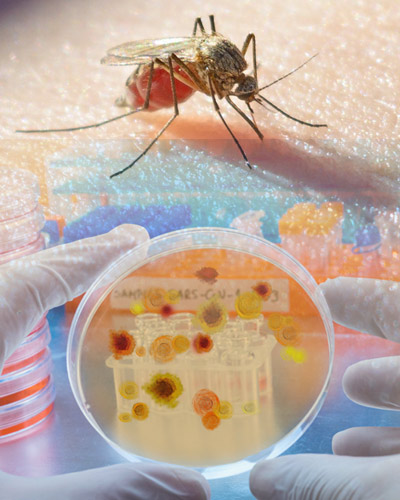
Monday, July 18, 2022
New Genomic Research Shows Why Testing Malaria Vaccines in the Clinic is as Rigorous as Natural Exposure in the Field
Malaria is the deadliest mosquito-borne parasitic infection of humans. In 2021, after a century of research, the World Health Organization (WHO) approved the world’s first malaria vaccine. That vaccine reduces the incidence of malaria infections in young children aged 5-17 months by only 30 percent, meaning that it remains critical to continue developing and testing more effective vaccines.

Wednesday, January 26, 2022
Trial Co-led by University of Maryland School of Medicine Scientist Confirms Safety of “Mix-and-Match” COVID-19 Vaccine Booster Dosing
A University of Maryland School of Medicine (UMSOM), Center for Vaccine Development and Global Health (CVD), expert is co-leading an ongoing study that was pivotal in recommending adults and teens receive booster COVID-19 shots of their choosing starting in fall 2021. The preliminary clinical trial results, reported today in The New England Journal of Medicine, found that is safe and effective to receive boosters that are the same or a different one from the person’s primary vaccine(s).

Wednesday, October 30, 2019
UM School of Medicine's Myron M. Levine, MD, DTPH, to Receive Prestigious Lifetime Award for Five Decades of Pioneering Vaccine Research
Myron M. Levine, MD, DTPH, the Simon and Bessie Grollman Distinguished Professor at the University of Maryland School of Medicine (UMSOM), Associate Dean for Global Health, Vaccinology and Infectious Diseases, and Founder and Former Director of the Center for Vaccine Development and Global Health (CVD) is a co-recipient of the 2020 Research! America Geoffrey Beene Foundation Builders of Science Award for his pioneering vaccine and infectious disease research.

Monday, October 21, 2019
UM School of Medicine's Kathleen M Neuzil Elected as Member of Prestigious National Academy of Medicine
Kathleen M. Neuzil, MD, MPH, Professor of Medicine and Pediatrics and Director of the Center for Vaccine Development and Global Health (CVD) at the University of Maryland School of Medicine (UMSOM), has been elected as a member of the National Academy of Medicine (NAM), in recognition of her pivotal research that has informed and shaped global vaccine and public health policy. Her membership was announced at the annual NAM meeting in Washington, D.C., placing her among the 2,178 U.S. members of this important organization. Membership in the Academy is considered one of the highest honors for individuals who have made major contributions to the advancement of the medical sciences, health care and public health.

Monday, August 19, 2019
UM School of Medicine Researcher Warns of Need for Malaria Drug to Treat Severe Cases in U.S.
Each year there are more than 200 million cases of malaria worldwide, a mosquito-borne disease caused by a parasite that brings on fever and body aches and, in some cases, more serious conditions such as coma and death. While the vast majority of these cases occur in sub-Saharan Africa and South Asia, the U.S. each year sees more than 1,500 cases, and currently there is limited access to an intravenously-administered (IV) drug needed for the more serious cases, according to a top malaria researcher at the University of Maryland School Medicine (UMSOM).
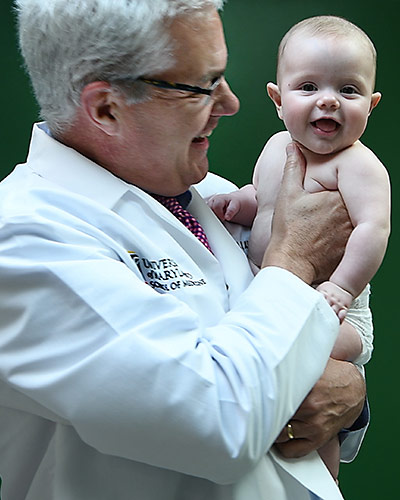
Wednesday, July 17, 2019
Vaccines Tested in UM School of Medicine’s Center for Vaccine Development Protect Children Around the World
For 30 years, the Center for Vaccine Development and Global Health (CVD) at the University of Maryland School of Medicine (UMSOM) has collaborated with the Pediatric Center of Frederick to test vaccines used in pediatric care.

Friday, March 08, 2019
UMSOM Researchers Unveil Progress and Challenges in Introducing Typhoid Conjugate Vaccine in Sub-Saharan Africa and Asia
Each year there are nearly 11 million cases of typhoid, a disease that is spread through contaminated food, drink and water. Researchers at the University of Maryland School of Medicine are leading an international consortium that is studying the impact of a typhoid conjugate vaccine (TCV) in an effort to accelerate introduction of the vaccine in countries in sub-Saharan Africa and Asia where there is a high burden of typhoid.

Thursday, December 20, 2018
Data From Largest Global Diarrheal Disease Study Available to Scientists on Public Sites
Data collected from the Global Enteric Multicenter Study (GEMS), a multi-site research project studying diarrheal diseases that was designed and coordinated by researchers in the Center for Vaccine Development and Global Health (CVD) at the University of Maryland School of Medicine (UMSOM), are now available to scientists on two online data resources.
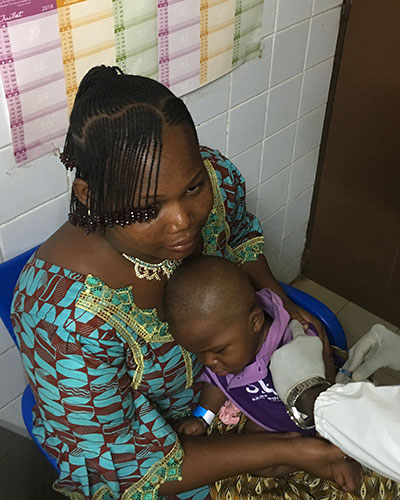
Monday, December 03, 2018
UMSOM and Groupe De Recherche Action En Sante Begin Second Typhoid Conjugate Vaccine Study in Africa
A new study has been launched in Burkina Faso for Bharat Biotech’s typhoid conjugate vaccine (TCV). It is the second clinical study underway in Africa for the vaccine and the first in West Africa. The vaccine study is a joint effort by the Center for Vaccine Development and Global Health (CVD) at the University of Maryland School of Medicine, (UMSOM) and Groupe de Recherche Action en Santé (GRAS) in Burkina Faso.
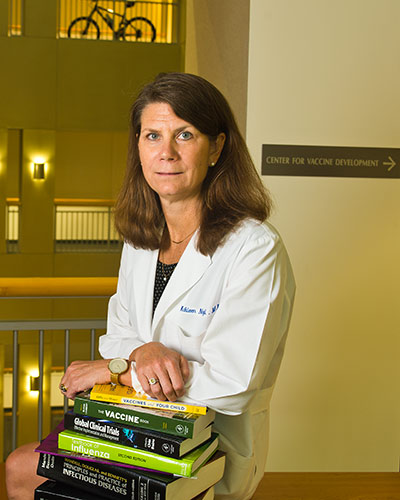
Friday, November 02, 2018
UMSOM Global Health Expert Named to Prestigious World Health Organization Immunization Panel
Kathleen Neuzil, MD, MPH, Professor of Medicine and Pediatrics and Director of the Center for Vaccine Development and Global Health (CVD) at the University of Maryland School of Medicine (UMSOM), has been named to the World Health Organization’s (WHO) Strategic Advisory Group of Experts (SAGE) on Immunization.

Sunday, October 28, 2018
American Society of Tropical Medicine & Hygiene Awards Dr. Miriam Laufer the LePrince Medal for Malaria Research
Miriam Laufer, MD, MPH, Professor of Pediatrics and Associate Director for Malaria Research at the University of Maryland School of Medicine’s (UMSOM) Center for Vaccine Development and Global Health (CVD), was awarded the Joseph Augustin LePrince Medal by the American Society of Tropical Medicine and Hygiene (ASTMH).
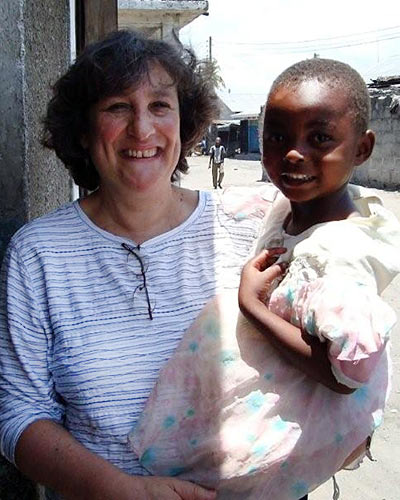
Monday, September 11, 2017
Research Identifies Causes and Possible Treatments for Deadly Diseases Affecting Children in Developing Countries
University of Maryland School of Medicine Researchers Explore How to Prevent Diarrheal Diseases, a Leading Cause of Death in Young Children in Sub-Saharan Africa and South Asia
